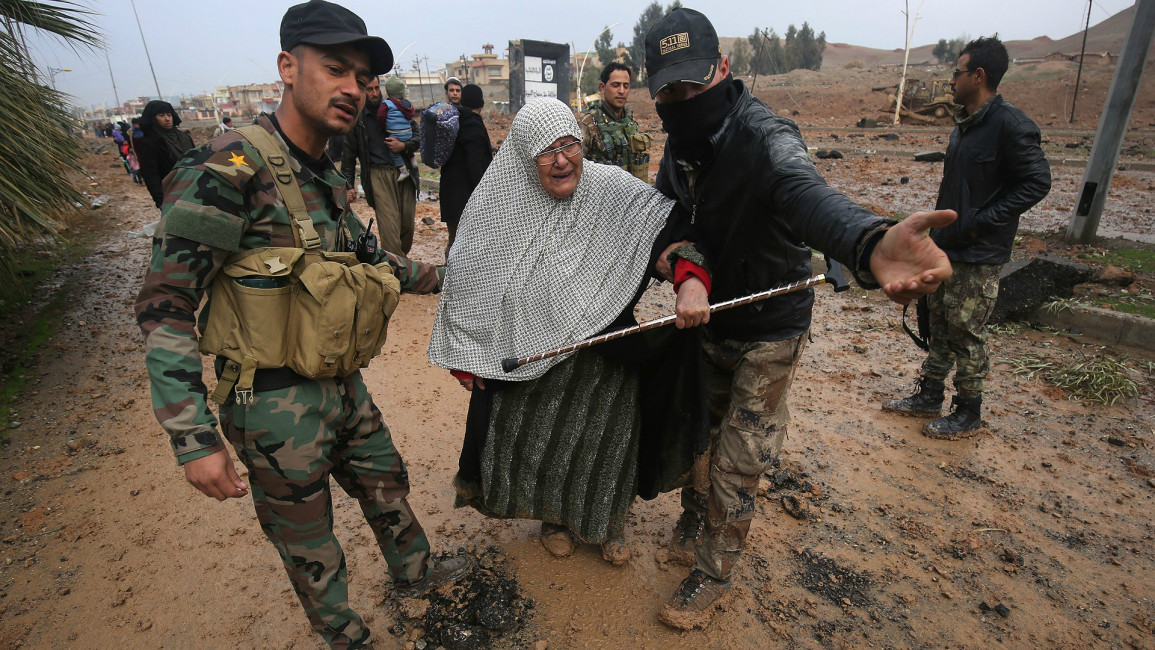Thousands of Mosul civilians face 'grave danger' warns UN
"We are relieved that so many people in the eastern sections of Mosul have been able to stay in their homes," the UN's humanitarian coordinator for Iraq, Lise Grande, said in a statement.
"We hope that everything is done to protect the hundreds of thousands of people who are across the river in the west. We know that they are at extreme risk and we fear for their lives," she said.
On October 17, tens of thousands of Iraqi forces launched an offensive – Iraq's largest military operation in years – to retake the country's second city from the Islamic State group.
The going has been tough for federal forces as IS has defended its last remaining major stronghold in Iraq fiercely.
All central neighbourhoods on the east bank of the Tigris River that divides the city have now been retaken and commanders are devising a strategy to tackle the western side of the city.
The slightly smaller western side is even more densely populated than the east and is home to some of the militants' traditional bastions.
 |
We don't know what will happen in western Mosul but we cannot rule out the possibility of siege-like conditions or a mass exodus. To date, nearly half of all the casualties from Mosul are civilians. It's terrifying to think of the risks families are facing - Lise Grande, UN's humanitarian coordinator for Iraq |
 |
In most other urban battles Iraq has waged against IS since the militants took over a third of the country in 2014, cities had been almost emptied of their population by the time federal forces moved in.
But in Mosul, while around 180,000 people were displaced since the start of the operation, 550,000 residents of east Mosul also stayed in their homes.
The United Nations says that humanitarian partners have been working "as quickly as possible" to provide direct life-saving assistance.
Nearly 600,000 people have received food, 745,000 people have benefitted from water and sanitation support and 370,000 people have sought medical care. Eighty-five per cent of the people displaced from Mosul are staying in 13 displacement camps and emergency sites constructed by the government and partners. Ten of these camps are already full of which four are being extended. Seven more are under construction.
"The reports from inside western Mosul are distressing. Humanitarian partners are unable to access these areas but all the evidence points to a sharply deteriorating situation. The prices of basic food and supplies are soaring. Water and electricity are intermittent in neighbourhoods and many families without income are eating only once a day. Others are being forced to burn furniture to stay warm," said Grande.
"We don't know what will happen in western Mosul but we cannot rule out the possibility of siege-like conditions or a mass exodus. To date, nearly half of all the casualties from Mosul are civilians. It's terrifying to think of the risks families are facing," said Grande.
"They can be killed by booby-traps and in cross-fire and could be used as human shields."


![Minnesota Tim Walz is working to court Muslim voters. [Getty]](/sites/default/files/styles/image_684x385/public/2169747529.jpeg?h=a5f2f23a&itok=b63Wif2V)




![Debris near Rafic Hariri International Airport [Getty]](/sites/default/files/styles/image_330x185/public/2176162423.jpeg?h=a5f2f23a&itok=MCSK9mkM)
![An Israeli air strike on Jabalia killed teenage journalist Hassan Hamad [Screengrab/X]](/sites/default/files/styles/image_330x185/public/2024-10/hassan%20hamad1.jpg?h=c12e0b96&itok=Rd_dyCVp)
